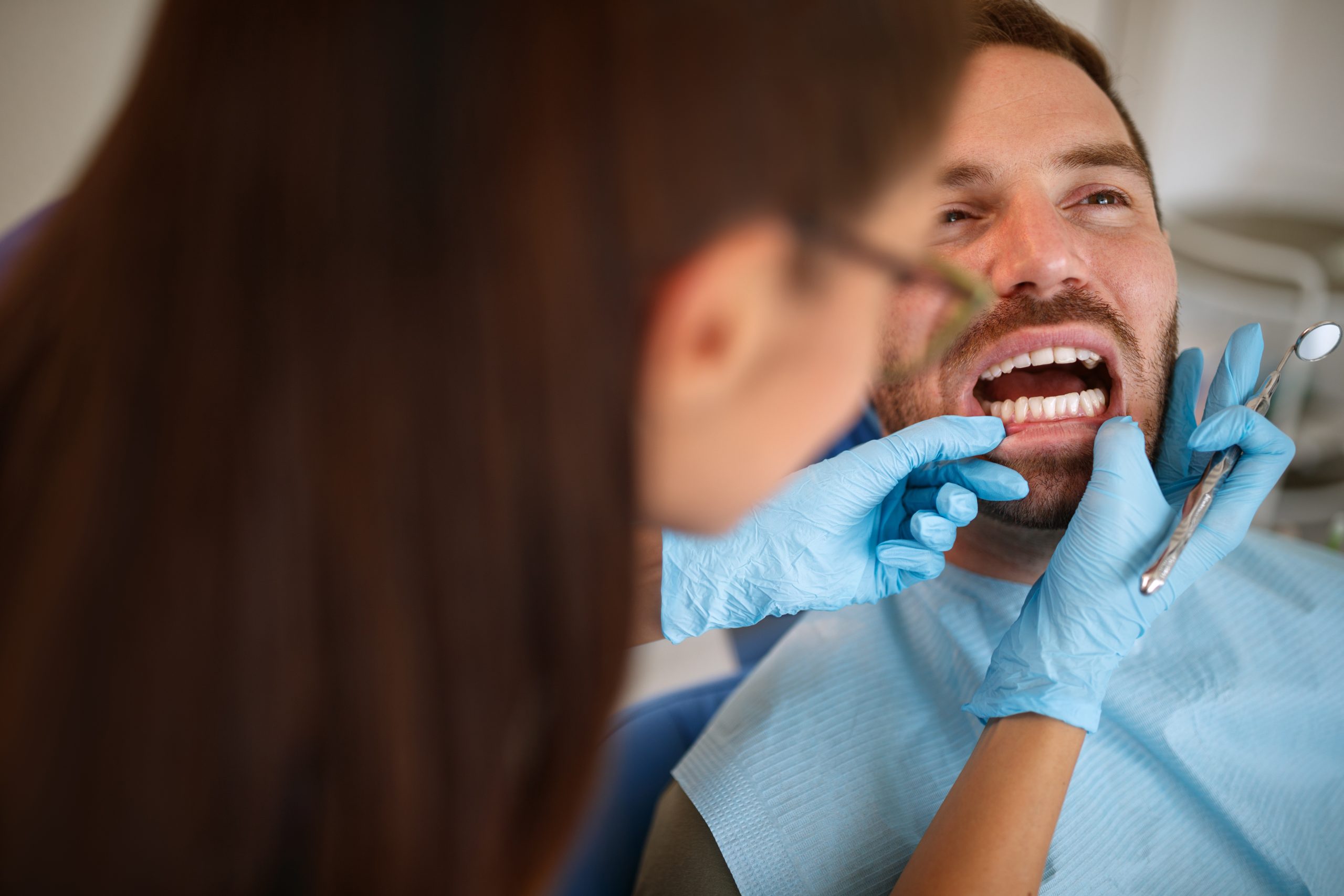Causes and Risk Factors
At Alliance Dental Care, we understand that periodontal gum disease can be a source of concern for many of our patients. This common condition is primarily caused by the buildup of plaque, a sticky film of bacteria that forms on your teeth. When plaque is not removed through regular brushing and flossing, it can harden into tartar, which can lead to inflammation and infection of the gums known as gingivitis. If left untreated, gingivitis can progress to periodontitis, a more serious form of gum disease that can damage the soft tissue and bone supporting the teeth.
The risk of developing periodontal gum disease increases with certain factors. Poor oral hygiene is a significant contributor, but other elements such as smoking, diabetes, hormonal changes in women, medications that reduce saliva flow, genetic susceptibility, and certain illnesses like cancer or AIDS can also elevate the risk. At Alliance Dental Care, Dr. Roarke J. Miller emphasizes the importance of understanding these risks to prevent the onset of periodontal disease. With a personalized approach to dental care, Dr. Miller is dedicated to helping patients maintain optimal oral health through education and comprehensive dental services.
Signs and Symptoms
If you’re experiencing tender, swollen gums, or noticing a bit of blood when you brush or floss, it may be time to consider the possibility of periodontal gum disease. These are just a few of the warning signs that shouldn’t be ignored. In Meridian, ID, there’s a trusted provider offering comprehensive care for this common yet serious condition. With a focus on patient education and preventative strategies, the practice ensures that individuals are well-informed about the risks of periodontal disease and the importance of early intervention.
Persistent bad breath, receding gums, and loose teeth are additional indicators that periodontal gum disease might be compromising your oral health. Under the expert guidance of Dr. Roarke J. Miller, patients receive personalized treatment plans tailored to address the specific stage and severity of their condition. Utilizing the latest in dental technology and techniques, the practice is committed to restoring dental health and maintaining the longevity of your smile. Whether it’s through non-surgical therapies or advanced surgical procedures, patients can trust in receiving top-tier care for their periodontal needs.
Diagnosis and Tests
At Alliance Dental Care, understanding the health of your gums is paramount to our practice. Dr. Roarke J. Miller utilizes the latest diagnostic tools to accurately detect periodontal gum disease at its earliest stages. The initial evaluation includes a thorough examination of your gums for any signs of inflammation, as well as the use of a small ruler called a ‘probe’ to check for and measure any pockets around the teeth. This non-invasive procedure is essential for determining the presence and severity of periodontal disease.
In addition to physical examination, Alliance Dental Care employs state-of-the-art digital imaging technologies to gain a comprehensive view of your oral health. Dr. Roarke J. Miller may recommend dental X-rays to assess the bone levels around your teeth, looking for any changes that might indicate advanced periodontal disease. By combining clinical evaluations with precise imaging, Alliance Dental Care ensures an accurate diagnosis, which is crucial for developing an effective treatment plan tailored to your specific needs.
Treatment Options
When it comes to combating Periodontal Gum Disease, early detection and intervention are key to maintaining oral health and preventing further complications. At Alliance Dental Care, the latest advancements in dental technology are utilized to provide patients with a range of effective treatment options. From deep cleaning procedures like scaling and root planing to more advanced surgical interventions, the team is dedicated to tailoring a treatment plan that addresses the unique needs of each patient. With a commitment to excellence, the practice ensures that individuals receive the highest standard of care for their periodontal concerns.
Understanding the importance of expert care in treating Periodontal Gum Disease, Alliance Dental Care offers comprehensive services designed to halt the progression of the disease and restore oral health. Dr. Roarke J. Miller brings a wealth of experience and a gentle touch to each procedure, ensuring that patients are comfortable and informed throughout their treatment journey. For those seeking exceptional periodontal care, look no further than your local Meridian dentists, where the focus is on delivering results that not only improve dental health but also enhance overall well-being.
Prevention and Maintenance
Understanding the importance of healthy gums is at the core of preventing periodontal gum disease. At the forefront of this effort is Dr. Roarke J. Miller, who emphasizes the significance of regular dental check-ups and cleanings to intercept any early signs of gum disease. By educating patients on proper oral hygiene techniques, including effective brushing and flossing habits, Dr. Miller ensures that each individual is equipped with the knowledge to maintain optimal oral health. Additionally, discussing lifestyle factors such as diet, smoking, and stress, which can influence periodontal health, is an integral part of the prevention strategy.
The maintenance of periodontal health is a collaborative journey that requires consistent care and attention. Dr. Roarke J. Miller provides personalized maintenance plans tailored to the unique needs of each patient’s gums. These plans often include regular professional cleanings to remove plaque and tartar buildup, as well as more frequent monitoring for patients who have previously experienced periodontal issues. By staying vigilant and proactive in the fight against gum disease, Dr. Miller helps patients preserve their natural teeth and maintain a strong foundation for overall oral health.
Book Your Appointment Today!
Don’t let periodontal gum disease compromise your smile and overall health. Contact Alliance Dental Care at 208-646-9461 to schedule a comprehensive evaluation and take the first step towards optimal oral health. For more convenience, visit our Contact Us page to book your appointment online. Also, feel free to read what our satisfied patients have to say on Google Maps.





